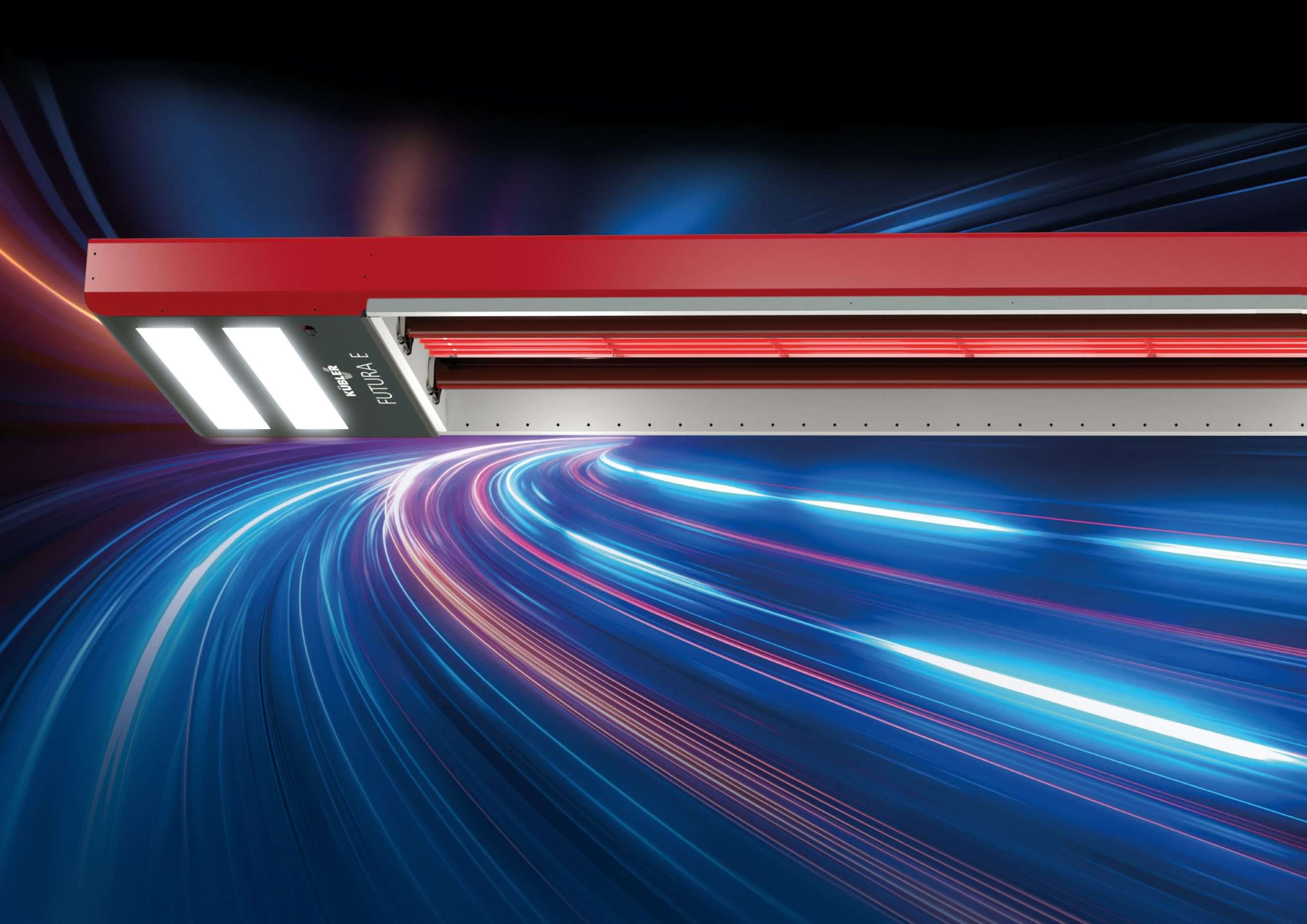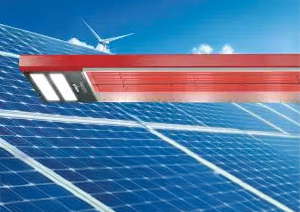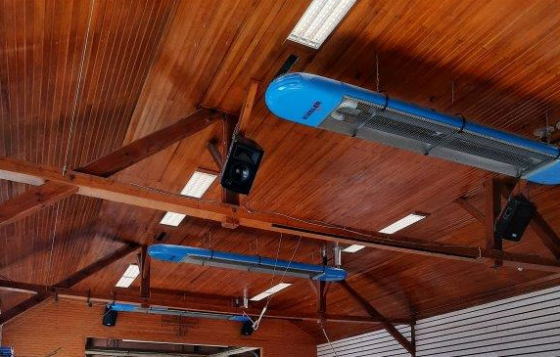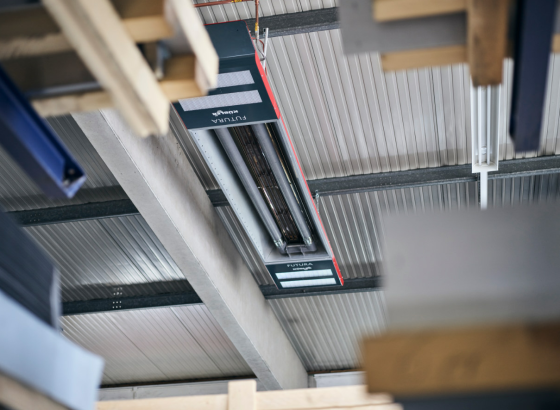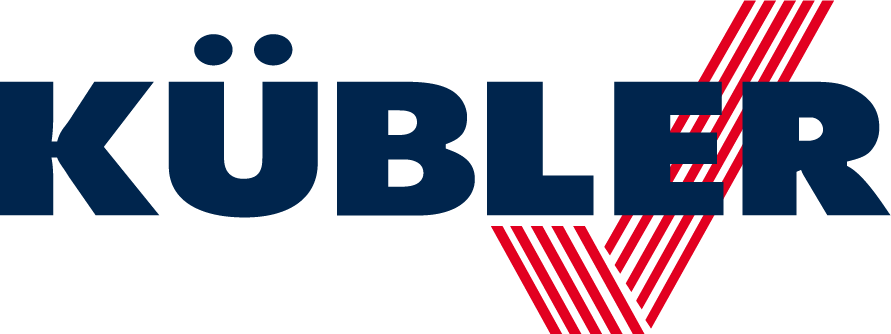New law highlights the efficiency of decentralized infrared heating systems - GEG comes into force on 01.11.
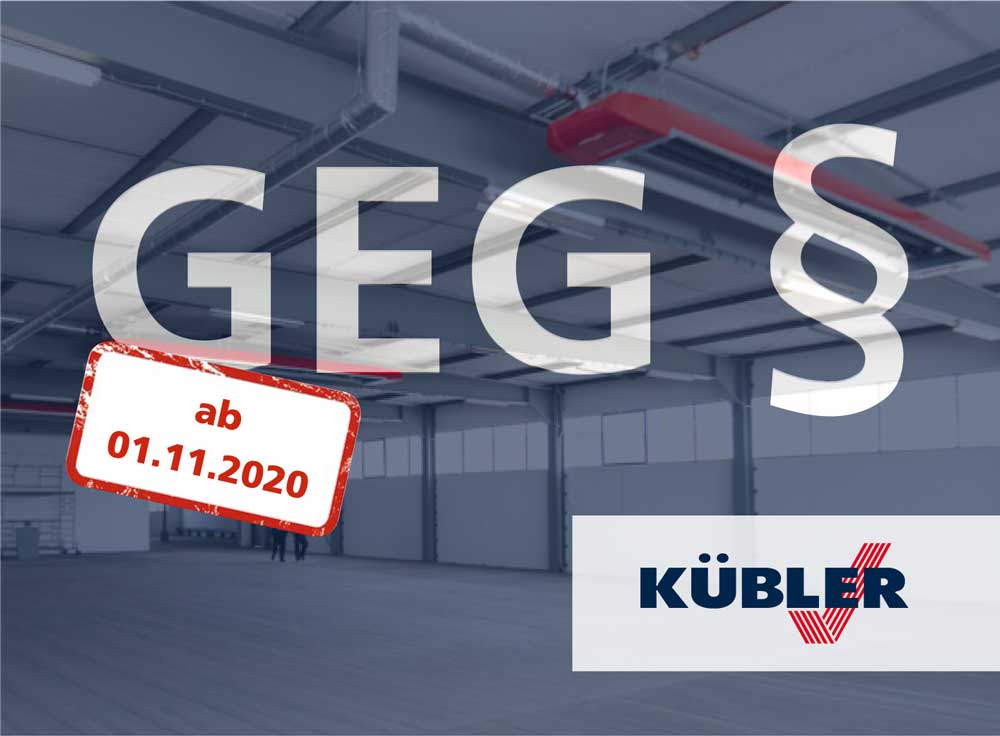
The Building Energy Act (GEG) will regulate energy requirements and the use of renewable energies for heating and cooling. This applies to both new and existing buildings. It replaces the previous regulations EnEV, EEWärmeG and EEG. When the GEG comes into force on November 1, 2020, these laws will be a thing of the past.
"And that's a good thing," says Thomas Kübler, Managing Partner of KÜBLER GmbH. According to KÜBLER, it has taken 11 years - from 2008/2009 to the present day - to correct the technical errors in the legislation in terms of openness to technology. The creators of the EnEV, EEWärmeG and EEG at the time focused on substitution with renewable energies and therefore on hydraulic systems, which are significantly less efficient and suitable in this respect. The issue of energy efficiency as the second central pillar of the energy transition was simply overlooked. "There was a failure to take a differentiated view of non-residential buildings. Due to their ceiling heights, hall buildings are subject to completely different physical and therefore heating requirements than kindergartens, for example," explains KÜBLER. Although this differentiation was supplemented with the new versions of the EnEV and EEWärmeG, it took until 2020 to open up the legislation to high-efficiency technologies such as decentralized infrared heating.
"This is really good news for building owners, especially in the area of new builds. The GEG finally takes into account energy-efficient technologies that achieve more and are more economical at the same time."
says Thomas Kübler. With the new law, heating technologies can now also be used without any problems, which are clearly superior not only in terms of energy efficiency but also in terms of ease of use. In addition, there is another welcome effect: "From an overall economic perspective, operators of hall buildings now have many more design options available to them to achieve energy efficiency in their companies. And at significantly lower investment costs."
For years, affected companies and associations have been fighting for the revision of the EEWärmeG. A uniform, coordinated set of regulations for the energy requirements for new buildings, existing buildings and the use of renewable energies for heating and cooling was called for. The regulations were intended to bring together the various laws on building energy efficiency and heat use and significantly simplify the previously highly complex and difficult to understand landscape of energy-saving legislation for building owners and planners. Drafts of this law have been available since 2017. After endless postponements over legislative periods, the GEG was adopted on June 18 based on the recommendation of the Committee on Economic Affairs and Energy in the Bundestag with the votes of the CDU/CSU and SPD. The Bundesrat approved the law on July 3. With its publication in the Federal Law Gazette on August 13, it is now clear that the GEG will enter into force on November 1, 2020.
"Now we finally have a regulation that is open to all technologies and no longer excludes highly efficient systems that are tailored to the specific requirements of large room heating simply because the designers have worked in an undifferentiated manner," says KÜBLER. The guiding principle "Efficiency first" is finally gaining in importance. In concrete terms, this means When the GEG comes into force, hall buildings or zones with a room height of more than 4 meters that are heated with decentralized technologies such as infrared radiant heating will be exempt from the obligation to use renewable energies.
-
In keeping with the motto "Doing good in a sustainable way", the raffle is traditionally one of the highlights of the KÜBLER Christmas party. New but unused items from cupboards and cellars find a new use as prizes - from pins to thrillers or vases. Even the raffle sale is eagerly awaited, as the company donates a [...]
-
Turnverein Mußbach e.V. is a traditional sports club with a long history. Since it was founded in 1860, it has got a large number of people of all ages and backgrounds moving and now has over 1,200 members. In order to meet the demands and needs of its members, the decision was made to replace the club's outdated heating system.
-
KÜBLER presents world firsts for the sustainable and economical heating of industrial, commercial and municipal buildings at ISH 2023.
-
"This award is a great honor for our company and confirms our ongoing commitment to excellence and customer satisfaction," said Thomas Kübler, Managing Partner of KÜBLER. "We would like to thank our valued customers for their trust and support, which has made this success possible. This recognition motivates us to continue to set the highest standards and [...]
